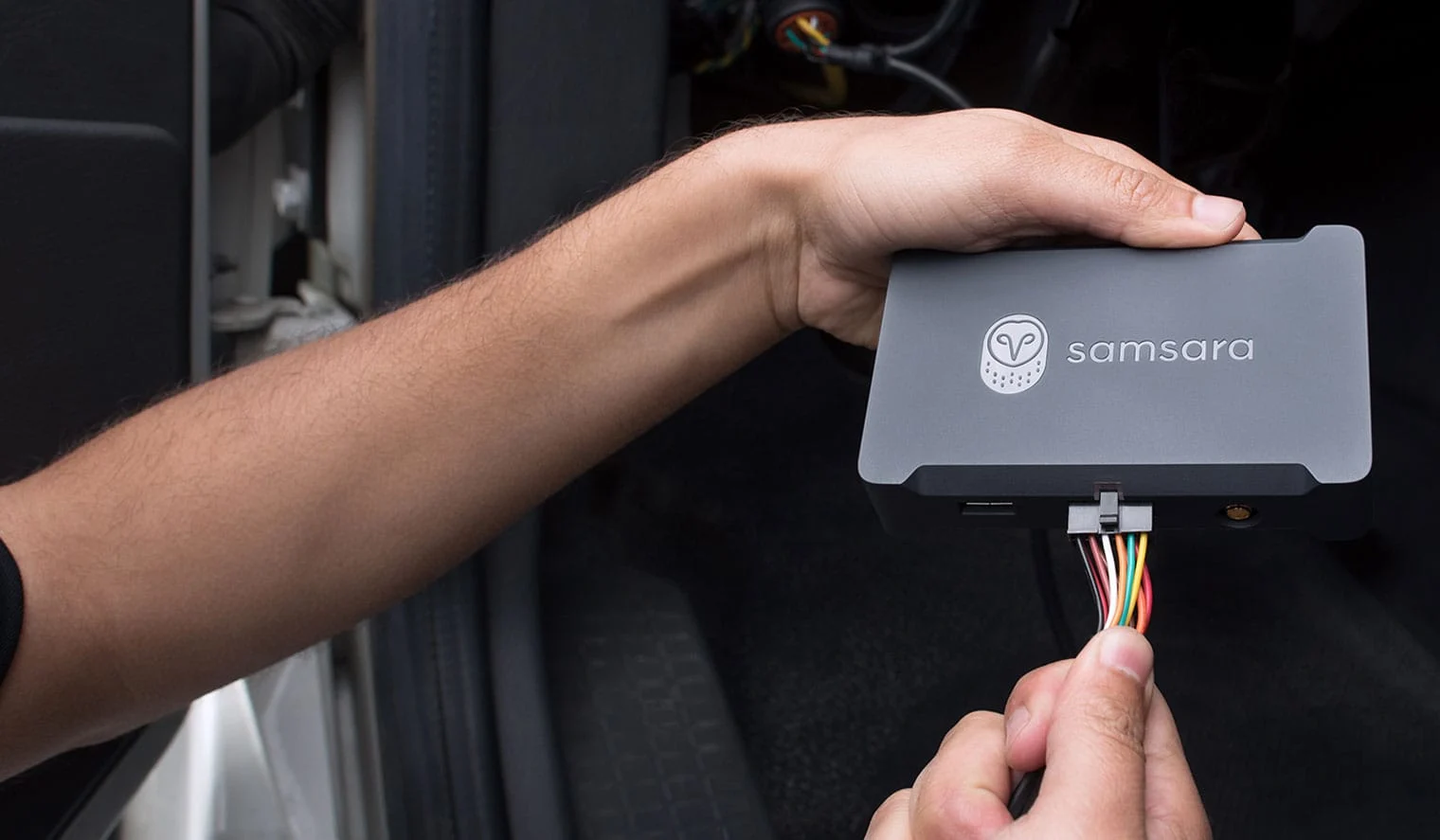Safety
Being Open and Proactive About Privacy and Data Will Improve Road Safety
October 26, 2023
Senior Director, Legal

Get the latest from Samsara
Subscribe nowSamsara customers — those businesses that keep the global economy moving—prevented 120,000 accidents last year thanks to our connected technology.
For me, this statistic was one of the standout highlights from Samsara’s recent Beyond conference underlining how technology can protect people while they’re simply doing their job.
Safety features such as in-vehicle cameras—augmented by artificial intelligence (AI)—turn ordinary dashcams into smart technology to improve driver and road safety.
Whether it’s in-cab nudges to remind drivers to buckle up or alerts to warn of tailgating, AI is helping to take driving safety to a whole new level.
But the introduction of AI-based technology — or tech that relies on data gathering — to improve road safety is not all one-way traffic. While there is no doubt that technology can help improve road safety, it has to be balanced against concerns about data protection and personal privacy.
For instance, an AI-enabled camera focused on a driver that’s smart enough to spot—and issue a warning—if they use their mobile phone behind the wheel may sound like a good thing.
But some argue that being watched constantly is an invasion of privacy.
So for any fleet looking to introduce AI-enabled dashcams, much of the success of the project will be down to steering the right course between data protection and safety.
It’s an issue discussed at length in a new report published by Samsara. The 2023 State of Privacy in Physical Operations report includes insights into issues such as privacy and data protection in the UK, France, and Germany, among others and how different countries are addressing the issue.
Crucially, for business leaders and fleet managers looking to implement such technology, it provides some guidance on how best to implement technology to address such data protection and privacy concerns, including very importantly, how to ensure drivers and those using the tech are comfortable.
Top tips to build a culture of privacy.
Identify an executive sponsor or team. It’s essential to have management buy-in. Safety matters that involve issues around privacy and data protection are much more likely to succeed if they have support from the very top of the business.
Build trust through open communication and frequent updates. Communicating openly about new and ongoing privacy initiatives is critical to creating a foundation of trust. Not only should this involve employees but, where necessary, trade union representatives as well.
Select vendors that prioritise privacy. One of the stats from the report revealed that 80% of senior execs said it is “very” or “extremely critical” for a new vendor to have a responsible stance on privacy. We couldn’t agree more. At Samsara, for example, we’ve developed a core set of privacy principles that help ensure sensitive customer data is protected.
Create clear policies about technology and privacy. To give the necessary confidence and reassurance that everyone needs, it’s essential to have written policies that govern the use of technology. But they mustn’t then be popped on a shelf and allowed to gather dust. It’s important to share these policies frequently using channels such as employment handbooks, workplace posters, email and company meetings.
Make sure everyone’s up to speed. When drivers understand how technology works—and that it’s there for their benefit—they are more likely to be in favour. Our survey found that 98% of executives said that educational content on capturing and uploading data would help ease privacy concerns.
Showcase the benefits of new technology. Following on from that last point, it’s always good to highlight examples where AI-powered technologies and dashcams have helped improve safety and exonerate drivers.
Which is exactly the approach taken by Antalis—one of the UK's leading materials suppliers—when it introduced dashcams to its fleet.
Before rolling out the tech, the firm spoke with trade union reps to explain their plans and how cameras can be used to defend drivers. Senior managers also sat down individually with each driver to explain the technology and address any concerns.
“At Antalis, we believe every driver in our team is a professional driver. Our drivers are obsessed with our customers,” explained Nicholas Thompson, Supply Chain Director at Antalis.
“We told our drivers that this technology will allow us to prove you are a professional driver. This will protect you,” he said.
You can find out more about Samsara’s commitment to privacy by downloading the 2023 State of Privacy in Physical Operations report today.
Get the latest from Samsara
Subscribe now


















